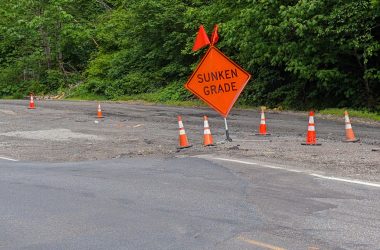This story originally appeared in the Oregon Capital Chronicle and is republished here under a CC BY-NC-ND 4.0 license. Read more stories at oregoncapitalchronicle.com.
The Oregon secretary of state said Tuesday that Republican state senators who had at least 10 unexcused absences during this year’s session will not be eligible to run in 2024.
LaVonne Griffin-Valade, who was recently appointed secretary, said in a statement she has directed her office to implement an administrative rule making it clear to legislators that Measure 113 will prevent them from running for a subsequent term. The measure was passed by voters in 2022 intending to end the walkouts by minority parties that have dogged the Legislature for years.
“It is clear voters intended Measure 113 to disqualify legislators from running for reelection if they had 10 or more unexcused absences in a legislative session,” said Griffin-Valade. “My decision honors the voters’ intent by enforcing the measure the way it was commonly understood when Oregonians added it to our state constitution.”
Almost all of the 12 Republican senators and one Independent joined the walkout over controversial bills, nearly stymying the session as it dragged on for six weeks. Ten accumulated at least 10 absences: Sens. Tim Knopp, R-Bend; Lynn Findley, R-Vale; Bill Hansell, R-Athena; Kim Thatcher, R-Keizer; Art Robinson, R-Cave Junction; Suzanne Weber, R-Tillamook; Daniel Bonham, R-The Dalles; Cedric Hayden, R-Fall Creek; Dennis Linthicum, R-Klamath Falls; and Brian Boquist, I-Dallas.
The Republicans ended their protest after Democrats agreed to water down bills on gender-affirming care and guns and refer a measure to the ballot to allow the Legislature to impeach statewide elected officials.
If those whose terms are ending are excluded from running next year, it would likely shift the makeup at least in the state Senate, potentially bringing in neophytes without much experience writing and negotiating bills and maneuvering in the Legislature.
It also could widen the majority of Democrats, who fell short in both chambers this year of having a supermajority that would allow them to pass new taxes without Republican support.
The 10 senators who are potentially barred from running represent one-third of the 30-member Senate.
Several Republican senators, including Knopp and Sen. Daniel Bonham, R-The Dalles, have called the measure poorly worded and threatened to sue.
The measure states that 10 or more unexcused absences “shall disqualify the member from holding office as a senator or representative for the term following the election after the member’s current term is completed.”
Republicans have quibbled with the timeline on when they would be disqualified. They say they’d be excluded from running the term after the next one. That interpretation would mean that those up for a new term in 2024 could run next year but not in 2028.
Importance of intent
But Griffin-Valade said the explanatory statement in the voters guide on Measure 113, court documents and even news stories back her interpretation. When interpreting ballot measures, the courts have looked at the intent, she said.
“Voters universally understood Measure 113 would prohibit legislators who accumulate 10 or more unexcused absences during a legislative session from holding office in the immediate next term,” the release said.
A secretary of state lawyer, who advised Griffin-Valade on the measure’s language, said in a memo obtained by the Capital Chronicle that “once a chamber has determined that a member has the requisite number of unexcused absences during a legislative session, the provision operates to disqualify that member from the following term of office. Accordingly, the secretary may use her preexisting statutory authority to reject candidacy filings from those persons.”
But Knopp disagreed. In a statement Tuesday, he attacked Griffin-Valade’s decision, saying she was quashing “the free speech of the minority.”
“We believe the plain language of Measure 113 allows for members to run again in 2024 elections,” Knopp said. We disagree with the secretary of state’s determination and will challenge it in court.”
Knopp also lashed out at Senate President Rob Wagner, D-Lake Oswego, saying his response to the walkout was “unlawful and unconstitutional” and that Wagner retaliated against Republicans by refusing to accept excuses for absences. The Senate president decides whether an excuse is legitimate.
“Wagner was quick to impose unexcused absences on members who challenged his failed leadership,” Knopp said.
A spokesman for Wagner declined to comment on Knopp’s statement and referred a reporter to the party’s Senate Democratic Leadership Fund, saying it’s an election matter.
That organization also declined to comment.
Wagner denied requests by Sen. Cedric Hayden, R-Fall City, asking to be excused from Senate floor sessions for religious services and to take care of his disabled daughter. He has filed complaints with the Bureau of Labor and Industries and the Legislative Equity Office against Wagner, saying his denials violated his religious freedom.
Hayden has asked the Oregon Government Ethics Commission for advice on how to legally solicit funds to cover attorney costs without violating ethics laws for a potential lawsuit.
Reporter Ben Botkin contributed to this story.














